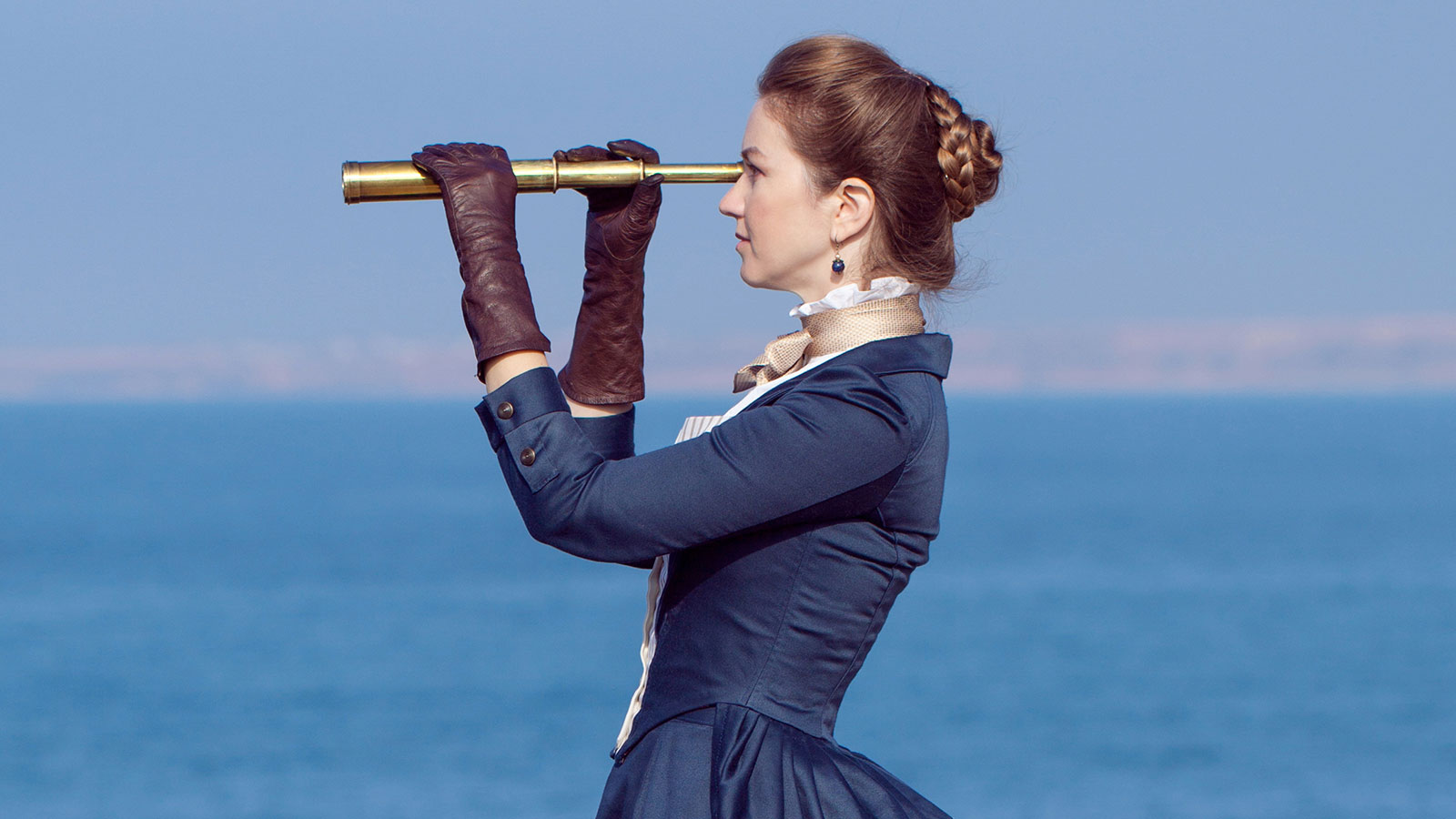This week, the internet was set aflame by the publication of a Vox essay extolling the virtues of leading a Victorian lifestyle… today. The author, Sarah A. Chrisman, has dedicated her life to a very involved game of make-believe. She and her husband not only live in a 127-year-old house — they also lead 127-year-old lives. They wear clothes made for the Brontës, ride bikes that should be in a museum, and use oil lamps instead of light bulbs. (No word on chamber pots, but we’re assuming the worst.) These two are committed!
Chrisman writes:
Our heat comes from 19th-century gas heaters and from an antique kerosene space heater. In the winter we tuck hot water bottles into bed with us, and even the cotton covers that I sewed for those bottles are made from period-appropriate fabric (its designs are copies of fabric patterns from the late 19th century). Our bed itself is an antique from our period of study, and since it didn’t have a mattress when we bought it, I sewed one by hand and stuffed it with feathers.
I bake all our bread from scratch, using a sourdough culture I keep constantly bubbling in the back corner of our kitchen in a bowl that belonged to my grandmother. When I want whipped cream or an omelet, I use an antique rotary eggbeater; when we want to grind something, we have a Victorian food chopper as well as mortars and pestles.
Naturally, the internet freaked the fuck out over these two weirdos — the best responses came from The Toast (“I Love 2012. So I Decided To Live In It.”) and Jezebel (“Other Fun Activities That Woman Living Life as a Victorian Should Try.”) It’s easy to see why people have reacted strongly to Chrisman’s essay. What the couple is doing is silly, for one, and not a little inconsistent: Chrisman may use an ice box, but I’m pretty sure Vox doesn’t accept submissions written in fountain pen. She also has a website, and a couple of books out about this elaborate history project. She additionally fails to mention how she and her husband pay for their corsets and woolen swim trunks. But the most common complaint about this piece is that it shows both Chrisman’s privilege and her naïveté: The couple is nostalgic for an era of colonialism, known for the rampant and systemic oppression of women and minorities. (So much has changed!) It makes you want to shake your head and say, “white people.”
And yet, there is one aspect of this ridiculous experiment that I actually find rather profound. Chrisman writes:
Much of modern technology has become a collection of magic black boxes: Push a button and light happens, push another button and heat happens, and so on. The systems that dominate people’s lives have become so opaque that few Americans have even the foggiest notion what makes most of the items they touch every day work — and trying to repair them would nullify the warranty. The resources that went into making those items are treated as nothing more than a price tag to grumble about when the bills come due. Very few people actually watch those resources decreasing as they use them. It’s impossible to watch fuel disappearing when it’s burned in a power plant hundreds of miles away, and convenient to forget there’s a connection.
She has a point: It is convenient to forget there’s a connection between fuel and power. I have no idea how electricity gets from the power plant to my house, and even though I spend most of my days thinking about climate change, I stop thinking about it when I want to switch on a light or turn on my heat.
None of this is to say that we should all go back to whale oil and kerosene (in fact, we definitely should not — kerosene is a dirty, inefficient fuel, and whale oil is made of, well, whale). What Chrisman and her husband are doing is undoubtedly weird, and though she writes that they are routinely picked on every time they leave the house, it’s hard to feel sorry for a grown woman in a bonnet. But even if their hobby is odd, we could learn a little something from this couple: To be aware of how much we’re using, even if we can’t see the source. Well, that and how to make soap.




